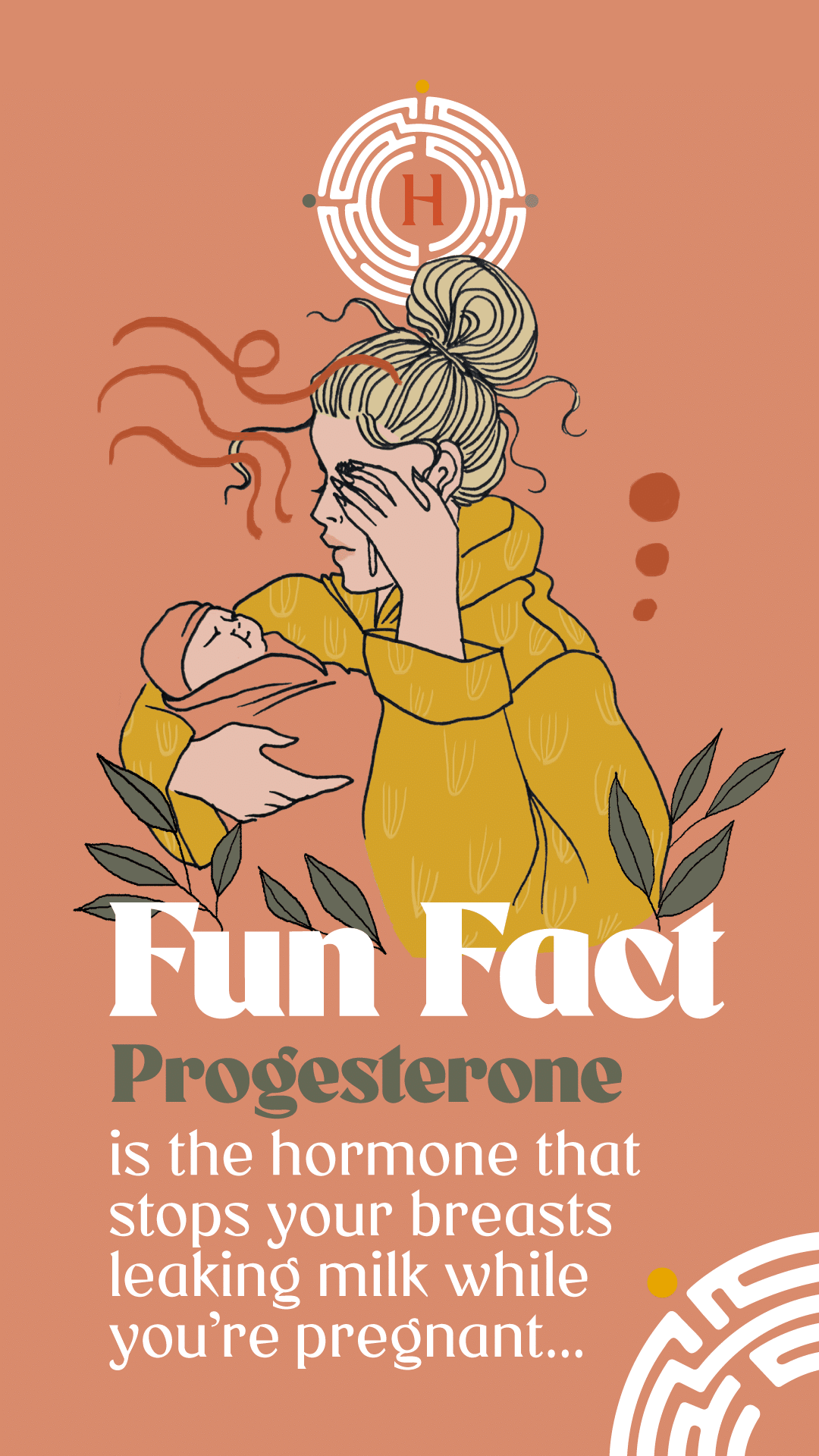Progesterone is crucial for your menstrual cycle and fertility, but it also influences your sleep and your mood too.
A similar term you may have heard of, is progestin. This refers to the group of synthetic (chemically created) hormones that aim to mimic the progesterone produced in your body naturally. Progestins are commonly found in birth control medications. If you take the pill, use patches, have an implant, or get injections for contraception, these all contain progestins.
Common progestins used in contraception include norethindrone, norethindrone acetate, ethynodiol diacetate, levonorgestrel, norgestrel, desogestrel, norgestimate, medroxyprogesterone, etonogestrel, and drospirenone.
What does progesterone do?
Estrogen is the primary hormone during the first half of your menstrual cycle. However, once an egg is released and ovulation occurs, progesterone takes over for the second half of the month and helps to trigger your period, starting the next cycle.
Progesterone is especially important during pregnancy. It helps to develop the fetus and support your pregnancy as a whole.
When levels of progesterone run low it can cause:



